
Kololo: The Posh Heart of Kampala
Kololo is one of the most upscale and vibrant neighborhoods in Kampala, Uganda's bustling capital city. Known for its lush greenery and serene environment, Kololo offers a refreshing contrast to the city's often chaotic streets. The neighborhood is perched on a hill, providing stunning panoramic views of Kampala and its surrounding areas, making it a perfect spot for leisurely walks and scenic photos. Kololo is also a hub of activity, featuring a range of high-end restaurants, chic cafes, and trendy bars. Whether you're in the mood for local Ugandan cuisine or international dishes, you'll find a dining spot that suits your palate. The nightlife here is equally captivating, with numerous spots offering live music, DJ sets, and a lively atmosphere. For those interested in culture and history, Kololo does not disappoint. The Uganda National Museum is just a short drive away, and the neighborhood itself is rich with embassies and historical buildings. Additionally, Kololo Airstrip often hosts various events, from concerts to food festivals, making it a focal point for both locals and tourists. Shopping enthusiasts will also find Kololo appealing, thanks to its boutique stores and modern shopping centers. Whether you're looking for unique souvenirs or high-end fashion, Kololo has something to offer. The area's safety and cleanliness further enhance its appeal, making it a wonderful place to explore at any time of the day.
Local tips in Kololo
- Visit early in the morning or late afternoon for the best views from Kololo Hill.
- Check out the event schedule at Kololo Airstrip; there's often something exciting happening.
- Wear comfortable walking shoes to explore the area's hilly terrain.
- Make reservations for popular restaurants to ensure a spot.
Kololo: The Posh Heart of Kampala
Kololo is one of the most upscale and vibrant neighborhoods in Kampala, Uganda's bustling capital city. Known for its lush greenery and serene environment, Kololo offers a refreshing contrast to the city's often chaotic streets. The neighborhood is perched on a hill, providing stunning panoramic views of Kampala and its surrounding areas, making it a perfect spot for leisurely walks and scenic photos. Kololo is also a hub of activity, featuring a range of high-end restaurants, chic cafes, and trendy bars. Whether you're in the mood for local Ugandan cuisine or international dishes, you'll find a dining spot that suits your palate. The nightlife here is equally captivating, with numerous spots offering live music, DJ sets, and a lively atmosphere. For those interested in culture and history, Kololo does not disappoint. The Uganda National Museum is just a short drive away, and the neighborhood itself is rich with embassies and historical buildings. Additionally, Kololo Airstrip often hosts various events, from concerts to food festivals, making it a focal point for both locals and tourists. Shopping enthusiasts will also find Kololo appealing, thanks to its boutique stores and modern shopping centers. Whether you're looking for unique souvenirs or high-end fashion, Kololo has something to offer. The area's safety and cleanliness further enhance its appeal, making it a wonderful place to explore at any time of the day.
Iconic landmarks you can’t miss
Acacia Mall
Discover the vibrant shopping and dining experience at Acacia Mall, Kampala's premier destination for tourists and locals alike.
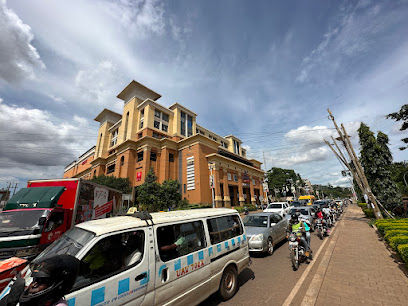
Centenary Park Kampala
Explore the beauty and tranquility of Centenary Park in Kampala, a lush urban retreat perfect for relaxation and cultural experiences.
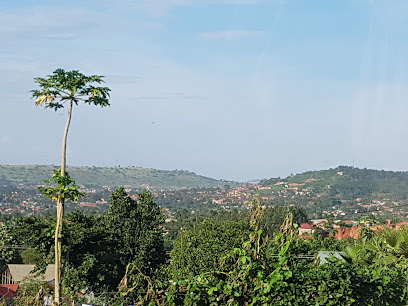
Uganda Museum
Discover the heart of Uganda's cultural heritage at the Uganda Museum, showcasing history, art, and tradition in an inspiring setting.
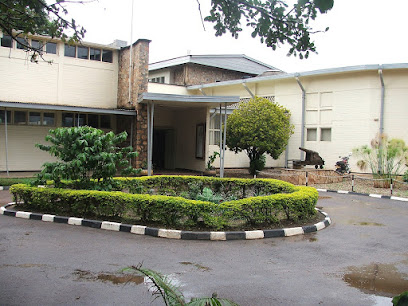
Kabaka's Palace
Explore the cultural heart of Uganda at Kabaka's Palace, a stunning symbol of the Buganda Kingdom's rich heritage and history.
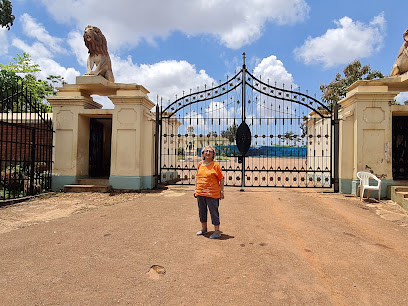
Bushpig Backpackers Hostel
Experience the vibrant atmosphere of Bushpig Backpackers Hostel in Kampala, a perfect base for exploring Uganda's capital city.
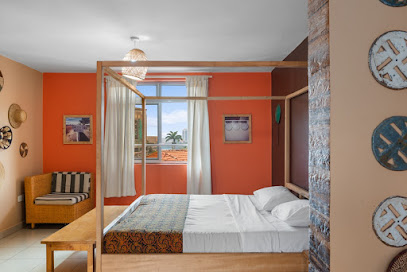
Independence Monument
Discover Uganda's rich history at the striking Independence Monument in the heart of Kampala, a must-visit for every traveler.
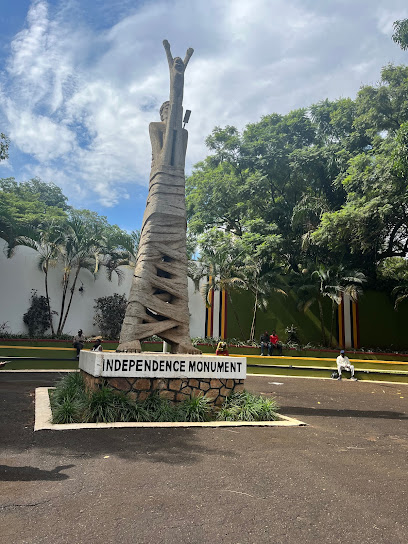
Kardamom & Koffee
Discover the perfect blend of coffee, art, and literature at Kardamom & Koffee, a must-visit café in the heart of Kampala.
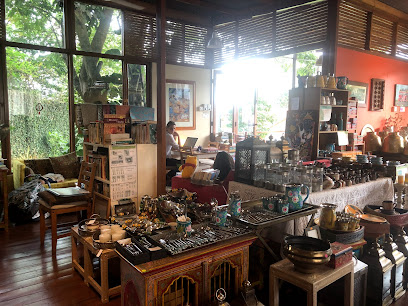
Kololo Independence Grounds
Explore Uganda's rich history at the Kololo Independence Grounds, a serene landmark in Kampala perfect for relaxation and reflection.
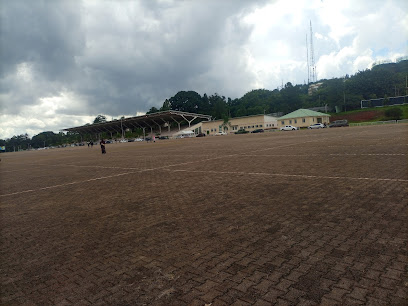
Kololo Airstrip
Explore the vibrant atmosphere at Kololo Airstrip, a unique destination in Kampala offering stunning views and a taste of local culture.
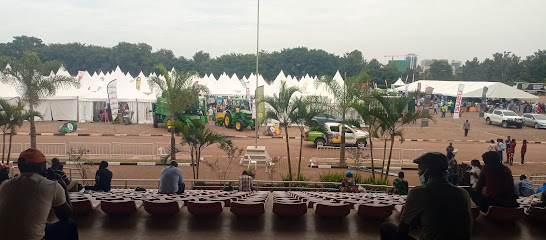
Kololo Hill view
Explore the breathtaking views and lush gardens at Kololo Hill View, a serene escape in Kampala, perfect for relaxation and nature lovers.
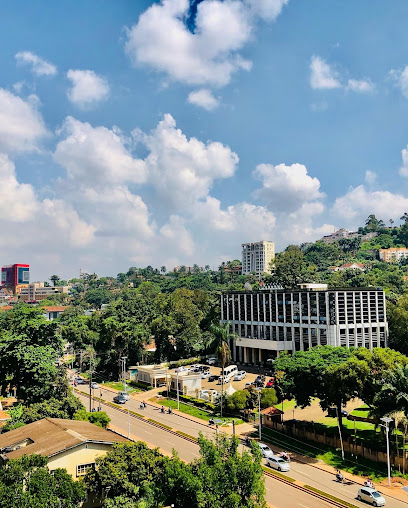
Kololo
Discover the serene charm of Kololo, a picturesque neighborhood in Kampala that offers a unique blend of luxury living and vibrant local culture.

Unmissable attractions to see
Sheraton Gardens
Explore the lush beauty of Sheraton Gardens in Kampala, a tranquil retreat perfect for relaxation, family outings, and nature photography.
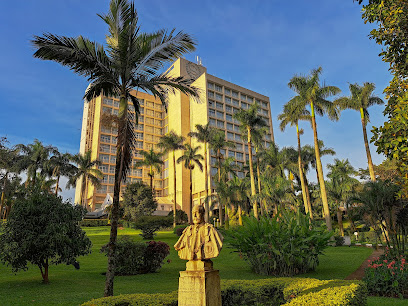
P.A. Gardens
Explore the lush beauty of P.A. Gardens in Kampala, a tranquil oasis perfect for relaxation and immersing in Uganda's vibrant culture.
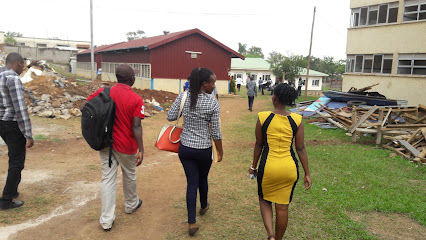
Kololo Hill view
Discover the serene beauty and panoramic views of Kololo Hill, a picturesque garden escape in the heart of Kampala, Uganda.
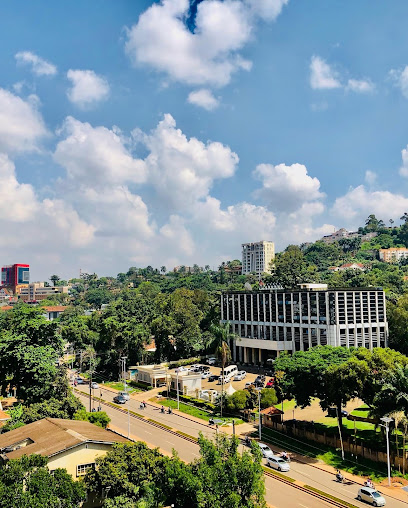
African Expert Safaris
Explore the breathtaking landscapes and wildlife of Uganda with African Expert Safaris, your gateway to unforgettable adventures.
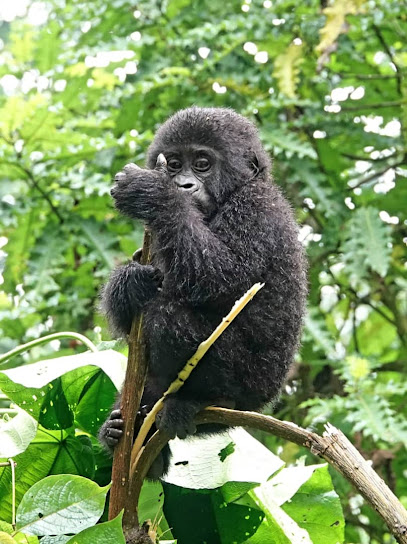
Essential places to dine
Tamarai
Discover the rich flavors of Thailand at Tamarai in Kampala – where authentic cuisine meets modern elegance.
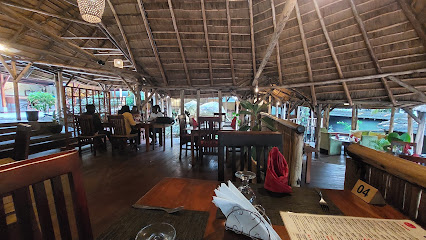
The Hickory
Discover the taste of Uganda at The Hickory – a delightful restaurant blending local and international flavors in Kampala.
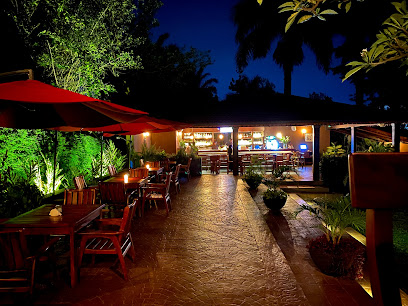
The Lawns Restaurant
Experience the best of fine dining and barbecue at The Lawns Restaurant in Kampala—where every meal is a celebration of flavor.
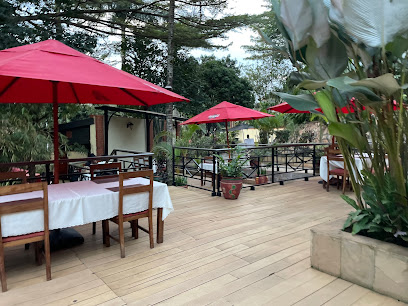
Izumi Restaurant & Lounge
Discover exquisite dining at Izumi Restaurant & Lounge in Kampala's Kololo neighborhood—where modern cuisine meets stunning views.
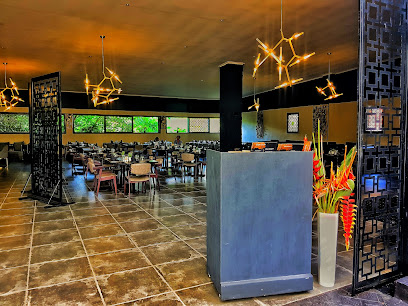
Cantine Divino
Experience the best of Ugandan and international cuisine at Cantine Divino in Kampala - where every meal is a celebration of flavor.
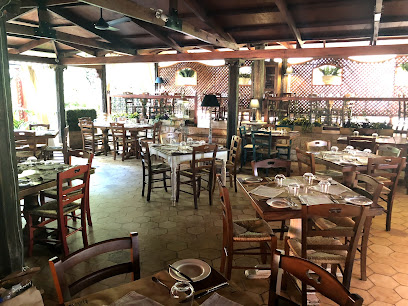
Pardis
Experience authentic Persian cuisine at Pardis in Kampala – where every dish tells a story filled with flavor and tradition.
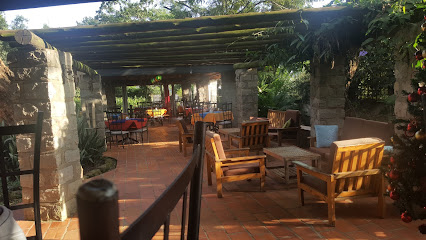
Bistro
Discover Bistro in Kampala - where local flavors meet international cuisine amidst stunning views.
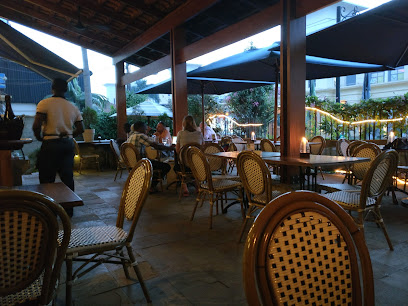
La Cabana Restaurant
Experience exquisite dining at La Cabana Restaurant in Kampala – where local flavors meet international cuisine in an elegant setting.
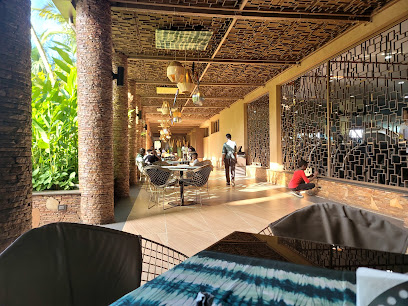
Roza Dymz
Experience Uganda's culinary fusion at Roza Dymz – where local flavors meet international flair in a vibrant atmosphere.
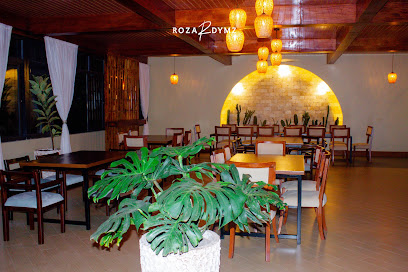
LUVE Restaurant
Experience the vibrant flavors of Uganda at LUVE Restaurant in Kampala – where local tradition meets modern culinary excellence.
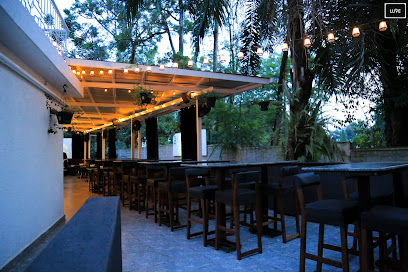
Markets, malls and hidden boutiques
Mr Price Kampala - Oasis Mall
Shop the latest trends at Mr Price Kampala in Oasis Mall, where style meets affordability in the heart of Uganda.
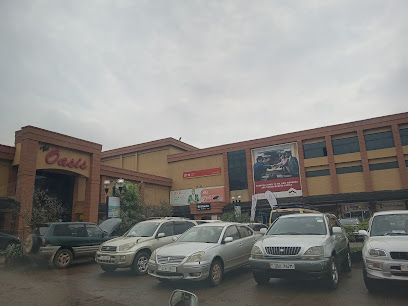
ZaGa (Zambezi Gallery)
Discover unique Ugandan arts and crafts at ZaGa (Zambezi Gallery) in Kampala, the perfect destination for authentic home goods and souvenirs.
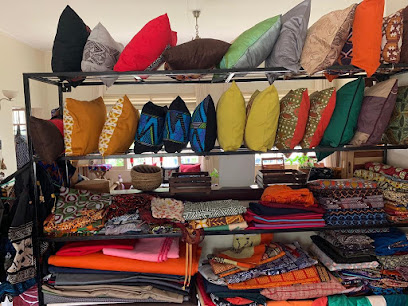
KONA
Explore KONA in Kampala for unique African gifts, stylish baby clothing, and fashionable accessories that capture the essence of Uganda.
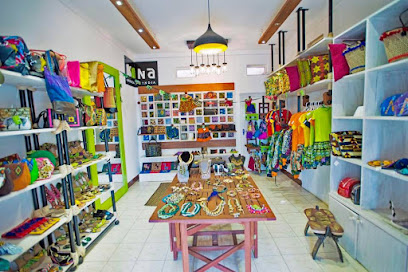
YASHIKA FASHION BOUTIQUE
Explore Yashika Fashion Boutique in Kampala for trendy outfits and exceptional service, perfect for every fashion enthusiast visiting Uganda.
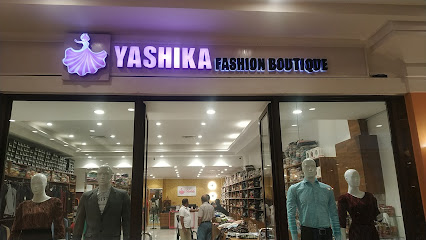
Her Fashion Box Uganda
Explore the vibrant Ugandan fashion at Her Fashion Box, your ultimate destination for women's clothing, accessories, and shoes in Kampala.
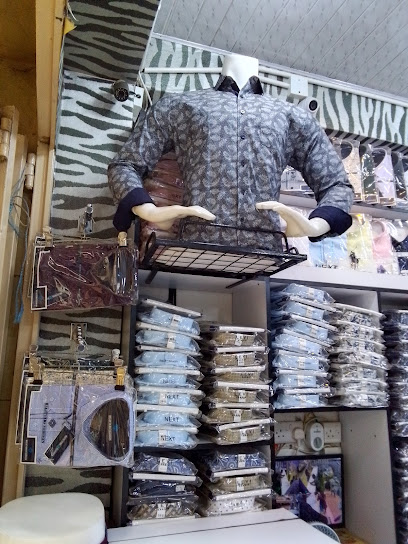
Mukama Asobola Boutique
Discover unique Ugandan fashion at Mukama Asobola Boutique, where traditional and modern styles meet in a vibrant shopping experience.
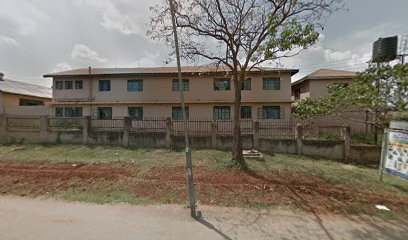
Kaduka
Explore the vibrant offerings of Kaduka, where local culture meets unique shopping in the heart of Kampala, Uganda.
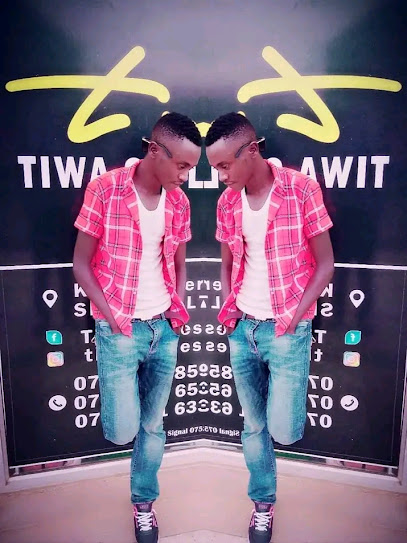
Hajay Salam Designers Boutique
Experience the blend of traditional and modern fashion at Hajay Salam Designers Boutique in Kampala, where every piece tells a story.
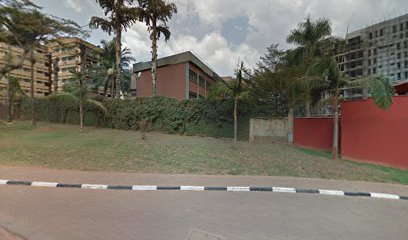
Hayinze E store
Explore the vibrant local culture at Hayinze E Store, where unique Ugandan crafts and fashion await your discovery.
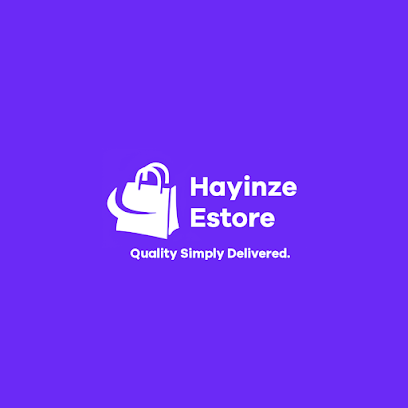
MINISO
Explore MINISO in Kampala for a unique shopping experience with a vast selection of affordable home goods, decor, and lifestyle products.
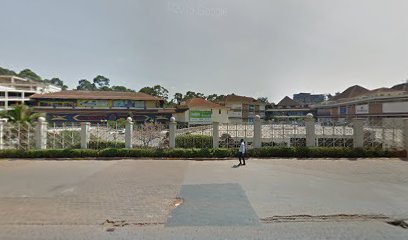
Essential bars & hidden hideouts
F.A.M.E Lounge
Discover the energetic vibe of F.A.M.E Lounge, Kampala's premier destination for nightlife, drinks, and unforgettable entertainment.
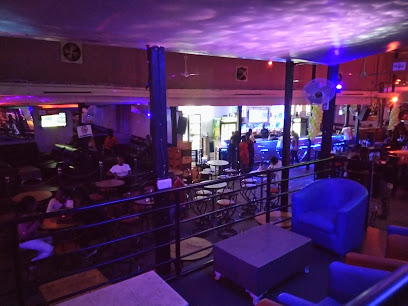
Riders Lounge Ug
Discover the lively energy and great drinks at Riders Lounge Ug, a premier bar in Kampala's Village Mall, perfect for nightlife enthusiasts.
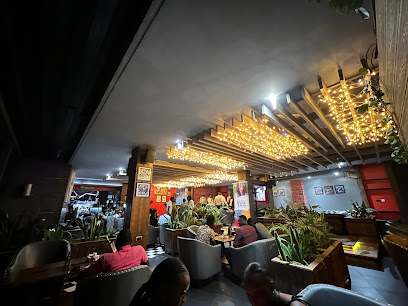
Hideout Lounge
Discover the vibrant Hideout Lounge in Kampala, a perfect blend of great grill dishes, refreshing drinks, and a lively atmosphere for unforgettable nights.
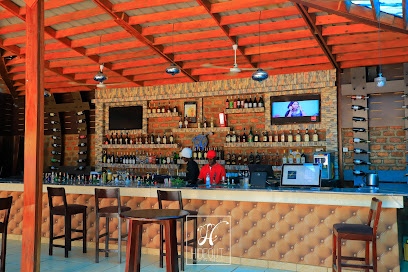
H2O Lounge and Restaurant
Discover H2O Lounge and Restaurant in Kampala, where vibrant ambiance meets delicious cuisine for an unforgettable dining experience.
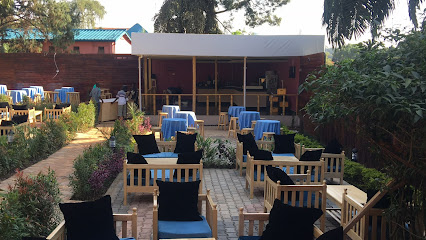
BRISK
Discover BRISK, a vibrant lounge in Kampala where relaxation meets culture, offering a diverse menu and inviting atmosphere for every traveler.
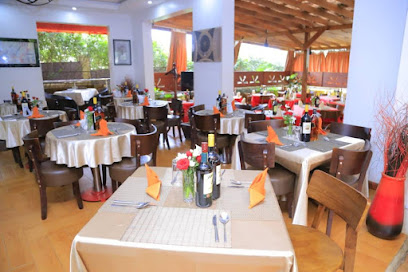
Otters Bar
Experience the lively atmosphere of Otters Bar in Kampala, where vibrant music, delicious drinks, and a friendly crowd come together for unforgettable nights.
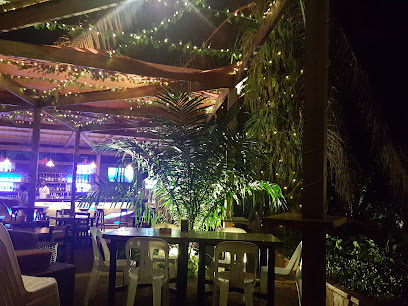
Molecule Lounge and Restaurant Kololo
Discover the vibrant nightlife of Kampala at Molecule Lounge and Restaurant, where exquisite dining meets lively entertainment in a chic setting.
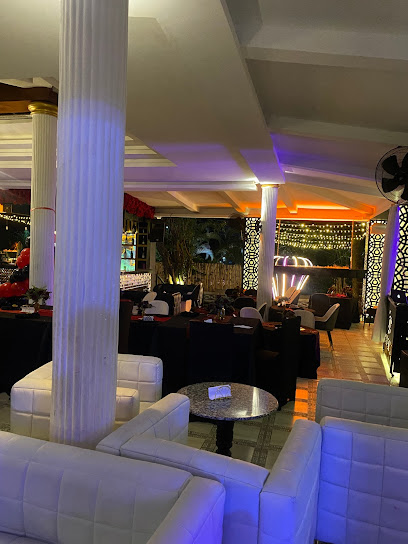
Plot 8 Restaurant and Lounge
Discover the vibrant atmosphere and delicious cuisine at Plot 8 Restaurant and Lounge, a top bar destination in the heart of Kampala.
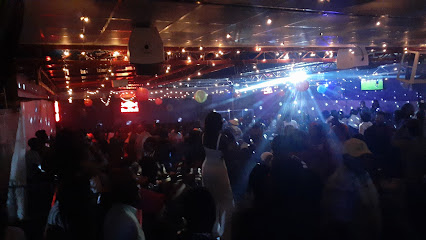
Regio Bar
Discover the vibrant nightlife of Kampala at Regio Bar, where stylish ambience meets an exciting social scene.
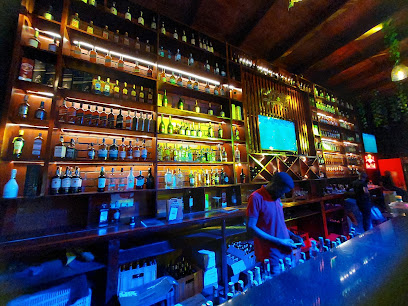
PALS BAR, BOUTIQUE AND RESTAURANT
Discover the vibrant ambiance and authentic South Sudanese cuisine at Pals Bar in Kampala, where culture, cuisine, and camaraderie come together.
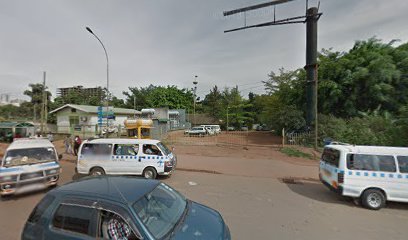
Local Phrases
-
- HelloOli otya
[oh-lee oh-tyah] - GoodbyeWeewa
[weh-wah] - YesYego
[yeh-go] - NoNedda
[neh-dah] - Please/You're welcomeMwebale
[mweh-bah-leh] - Thank youWebale munonga
[weh-bah-leh moo-nohn-gah] - Excuse me/SorrySsentebe
[sen-teh-beh] - How are you?Oliotya?
[oh-lee-oh-tyah] - Fine. And you?Gyi, naawe?
[jee, nah-weh] - Do you speak English?Omanyi Olungereza?
[oh-mahn-yee oh-loon-geh-reh-zah] - I don't understandSiintuuka
[seen-too-kah]
- HelloOli otya
-
- I'd like to see the menu, pleaseNkikwaniriza okulabako menu, mwebale
[nkee-kwah-nee-ree-zah oh-koo-lah-bah-koh meh-noo, mweh-bah-leh] - I don't eat meatSisobola kulya embwa
[see-soh-boh-lah kool-yah em-bwah] - Cheers!Mirembe
[mee-rem-beh] - I would like to pay, pleaseNkikwatireko mwebale
[nkee-kwah-tee-reh-koh mweh-bah-leh]
- I'd like to see the menu, pleaseNkikwaniriza okulabako menu, mwebale
-
- Help!Tusasula!
[too-sah-soo-lah] - Go away!Kwata wansi!
[kwah-tah wahn-see] - Call the Police!Tulyeeko poliisi!
[too-lyeh-koh poh-lee-see] - Call a doctor!Tulyeeko ddaktari!
[too-lyeh-koh dahk-tah-ree] - I'm lostNkikolabye
[nkee-koh-lah-bee-yeh] - I'm illNjagala mpulira
[n-jah-gah-lah m-pool-ee-rah]
- Help!Tusasula!
-
- I'd like to buy...Nkikwatireko...
[nkee-kwah-tee-reh-koh] - I'm just lookingNkikolamu
[nkee-koh-lah-moo] - How much is it?Bino birungi bino?
[bee-noh bee-roon-gee bee-noh] - That's too expensiveBino biri mubi mubi
[bee-noh bee-ree moo-bee moo-bee] - Can you lower the price?Obeera wansi mubi?
[oh-beh-eh-rah wahn-see moo-bee]
- I'd like to buy...Nkikwatireko...
-
- What time is it?Saa ya kati?
[sah yah kah-tee] - It's one o'clockSaa moja
[sah moo-jah] - Half past (10)Nusu kumi
[noo-soo koo-mee] - MorningEmirembe
[eh-mee-rem-beh] - AfternoonEkiro
[eh-kee-roh] - EveningEkyeewo
[eh-kyeh-eh-woh] - YesterdayJino
[jee-noh] - TodayLero
[leh-roh] - TomorrowLwakka
[lwah-kah] - 1Mmoja
[m-moh-jah] - 2Mbili
[m-bee-lee] - 3Tatu
[tah-too] - 4Nne
[n-nay] - 5Tano
[tah-noh] - 6Sita
[see-tah] - 7Saba
[sah-bah] - 8Nane
[nah-neh] - 9Tisa
[tee-sah] - 10Kumi
[koo-mee]
- What time is it?Saa ya kati?
-
- Where's a/the...?Wali a/the...?
[wah-lee a/the...] - What's the address?Yasooka awo?
[yah-soh-kah ah-woh] - Can you show me (on the map)?Obeera mutuuse (mu mapu)?
[oh-beh-eh-rah moo-too-seh (moo mah-poo)] - When's the next (bus)?Waliwo omugaso ogwo?
[wah-lee-woh oh-moo-gah-so oh-gwoh] - A ticket (to ....)Lumbe (ku ....)
[loom-beh (koo ....)]
- Where's a/the...?Wali a/the...?
History of Kololo
-
Kololo emerged as a prominent neighborhood during the British colonial period in the late 19th and early 20th centuries. Initially a residential area for colonial administrators and expatriates, Kololo's elevated position offered a cooler climate, making it desirable for settlement. The neighborhood's layout and infrastructure were heavily influenced by colonial planning, with wide streets and spacious homes, which set it apart from other densely populated areas of Kampala.
-
After Uganda gained independence in 1962, Kololo became a symbol of modernity and progress. Many government officials and wealthy Ugandans built large homes in the area, contributing to its reputation as an affluent neighborhood. The establishment of embassies and international organizations further solidified Kololo's status as a diplomatic hub within Kampala.
-
The political instability that plagued Uganda during the 1970s and 1980s, particularly under Idi Amin's regime, affected Kololo. Many residents fled the country, and properties were abandoned or repurposed. However, the neighborhood showcased resilience, with a gradual return of residents and investments in the area following the restoration of stability in the 1990s.
-
In the 21st century, Kololo has evolved into a vibrant cultural and social hub in Kampala. The neighborhood hosts a variety of restaurants, art galleries, and cultural centers that reflect the diverse heritage of Uganda. Annual events, such as the Kampala International Festival, often feature Kololo as a venue, fostering community engagement and cultural exchange.
-
Kololo is characterized by a mix of colonial-era architecture and modern constructions, showcasing the evolution of Kampala’s urban landscape. Historical buildings stand alongside contemporary designs, making the neighborhood a focal point for architectural enthusiasts. Notable landmarks, such as the Uganda Museum and the Kololo Independence Grounds, serve as reminders of the area's rich heritage and ongoing development.
Kololo Essentials
-
Kololo is conveniently located just a few kilometers from the city center of Kampala. From other neighborhoods such as Nakasero or Kamwokya, you can take a boda boda (motorcycle taxi) for a quick ride. Matatus (minibuses) also operate from various parts of Kampala to Kololo, with several stopping points along Jinja Road. If you're coming from Entebbe International Airport, a taxi or airport shuttle will take approximately 45 minutes to an hour, depending on traffic.
-
Kololo is a walkable neighborhood with many attractions within a short distance. For longer distances, boda bodas are a popular and efficient means of transport, but ensure you negotiate the fare beforehand. Taxis and ride-hailing services like Uber are also available and can provide a safer alternative. Public transport options like matatus are limited within Kololo but can be used to connect with other parts of Kampala.
-
Kololo is generally considered a safe neighborhood; however, it's essential to exercise standard precautions. While violent crime is rare, petty theft can occur, particularly in crowded areas. Avoid walking alone late at night, especially near areas like Kamwokya and parts of the city center, which have higher crime rates. Keep your belongings secure and be cautious when using ATMs.
-
In case of an emergency, dial 112 for police assistance or 911 for medical emergencies. Local hospitals and clinics are available for urgent health needs. It is advisable to have travel insurance that includes coverage for medical emergencies. For minor ailments, pharmacies are scattered throughout Kololo, where you can purchase over-the-counter medications.
-
Fashion: Do dress modestly, especially when visiting religious sites. Avoid overly revealing clothing. Religion: Do respect local customs and practices; it’s customary to remove your shoes when entering someone’s home. Public Transport: Do be polite and give up your seat to elderly individuals. Don’t engage in loud conversations on public transport. Greetings: Do greet people with a handshake and a smile; it's a sign of friendliness. Eating & Drinking: Do try local dishes and accept food offerings graciously. Don’t refuse hospitality, as it is deemed impolite.
-
To experience Kololo like a local, visit the local markets such as the Nakawa Market for fresh produce and artisanal goods. Engage with the locals; they are often friendly and enjoy sharing stories about their neighborhood. Don't miss out on visiting local cafes and restaurants to sample Ugandan cuisine. For a unique perspective of the area, take a walk along the scenic roads, and enjoy the views of the city and surrounding hills.
Nearby Cities to Kololo
-
Things To Do in Entebbe
-
Things To Do in Jinja
-
Things To Do in Masaka
-
Things To Do in Mbale
-
Things To Do in Bukoba
-
Things To Do in Lira
-
Things To Do in Mbarara
-
Things To Do in Kisumu
-
Things To Do in Fort Portal
-
Things To Do in Gulu
-
Things To Do in Kitale
-
Things To Do in Eldoret
-
Things To Do in Nyagatare
-
Things To Do in Mwanza
-
Things To Do in Arua








